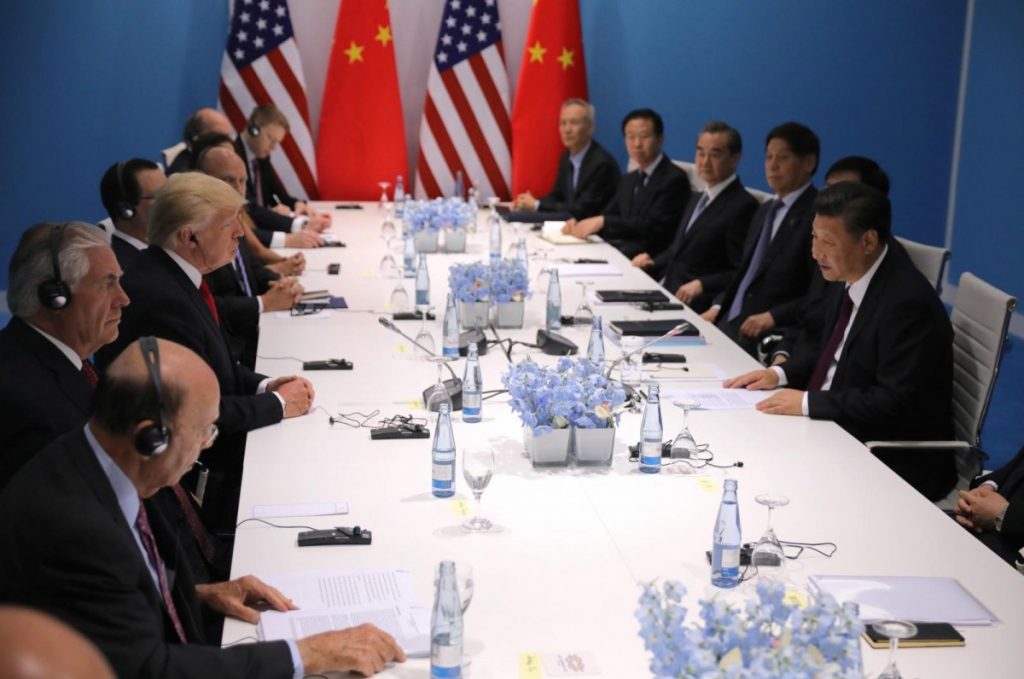
The relevance of the Group of 20 (G20), a gathering of heads of government and multilateral institutions, has been questioned for some time now. After its heroic performance in managing the global fallout of the ‘Trans-Atlantic’ financial crisis of 2008-09, the G20 has merely meandered around important challenges to the world economy, doing precious little about it. Consequently, in the past few years, there has been persistent criticism of the G20. Many regard it as one more place to talk shop and photo-op.
While G20 leaders have tried to remain relevant and focus on issues impinging on global economic growth and development, the fact is that on the eve of their summit later this week in Buenos Aires, Argentina, the G20 is once again faced with questions of its relevance to dealing with the challenges of the day. Worse, the G20 summit faces the risk of being reduced to a G2 event – a meeting between US President Donald Trump and China’s President Xi Jinping.
The international media, at any rate, seems to have very little interest in the summit’s official agenda – future of work, infrastructure for development and sustainable food future – and will remain focused largely on the Trump-Xi, Trump-Putin and Trump-Salman meetings. There could be side shows like Trump’s meetings with some key West European leaders and with Prime Minister Narendra Modi and Prime Minister Shinzo Abe of Japan. But for Western media, it will be all about Trump.
The irony is that the single most important challenge to global economic stability today is being posed in an area that the G20 refused to include in its initial agenda at the time of its formation in 2008-09, namely, international trade. While the director-general of the World Trade Organisation (WTO) is an invitee to the G20, multilateral trade was consciously kept outside the G20’s ambit so that the G7 could continue to manipulate the WTO agenda.
Also read: Why the G20 Needs to Go Back to Its Roots
Yet, when faced with the current challenge to global growth from the unilateral trade policy actions of the US, the G20 will together talk only about long-term issues like the future of work, infrastructure and food, while immediate trade-related issues arising from US unilateralism will only be discussed in bilaterals on the sidelines. It would be a pity if the G20 were reduced to meaningless speeches for the full gathering, leaving substantial conversations to bilaterals on the sidelines. That would be just another nail in the G20 coffin.
Confining trade policy issues to G20 sidelines and not putting them at the heart of the Buenos Aires agenda will only reinforce the image of the G20 summit as nothing more than an opportunity to talk shop.

US President Donald Trump and Chinese President Xi Jinping attend the bilateral meeting at the G20 leaders summit in Hamburg, Germany July 8, 2017. Credit: Reuters/Carlos Barria
India’s responsibility
Modi’s focus at the summit may also be on his meetings with Trump, Abe and other heads of government. However, Modi could play a constructive global role at the summit by demanding that all international trade policy issues ought to now form part of G20’s core agenda; that issues arising from the US-China trade war should be discussed at the summit; that the G20 have to jointly consider the impact of the US-China trade war on a range of developing countries. India has to speak for the developing world at G20.
In fact, the G20 would be addressing at least two of the three agenda items – future of work and sustainable food future – by ensuring that the global trading system remains free and fair – ‘fair’ to developing economies. Rather than turn the summit into an academic seminar on labour-displacing technologies, AI and the lot, responsible political leaders around the world should demand here and now a rules-based multilateral trading system that enables people to access jobs. This means, among other things, a hot-button issue like lifting curbs on migration. After all, restrictions on the movement of persons have restricted access to gainful employment.

World leaders at a previous G20 summit. Credit: Reuters
Even the G20’s third topic – infrastructure development – is related to the future of trade. Who would invest in trans-border connectivity if there is no assurance of growth in the trans-border movement of goods, services and people? In short, even the formal agenda items are trade-related.
The US will, of course, try to appease a few friendly countries by addressing some of their concerns and keep the focus on China. That would suit individual countries, including India, in the immediate future. However, in the medium term, there has to be a revival of multilateralism in trade and the G20 must be the forum that ensures this. Trade must get on to the G20 agenda. That ought to be India’s message at Buenos Aires.
Sanjaya Baru was formerly director for geo-economics and strategy at the International Institute of Strategic Studies, London.





